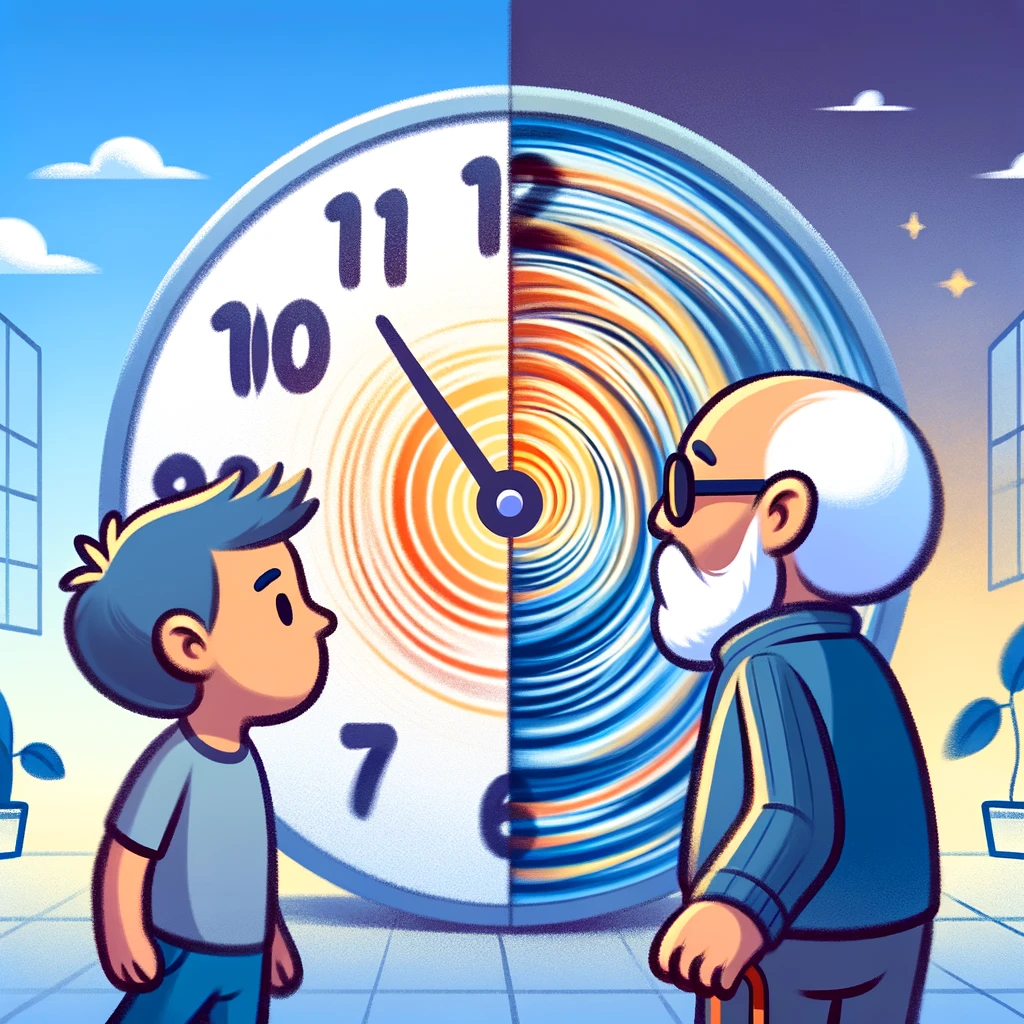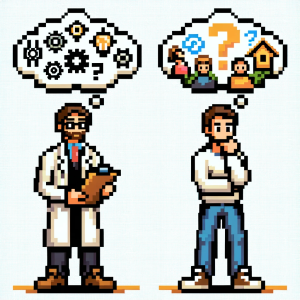
Understanding Time Perception: A Closer Look at “Why the Days Seem Shorter as We Get Older”
Time is an enigma that has captivated humans for centuries. A fascinating aspect of this enigma is the perception of time and how it changes as we age. The article Why the Days Seem Shorter as We Get Older,” published in the European Review delves into this intriguing phenomenon, shedding light on the physics behind our changing perception of time.
The Puzzling Perception of Time
Have you ever noticed how days seemed endless as a child, but as an adult, years seem to fly by?
This universal experience is not just a figment of our imagination. It’s rooted in the complex interplay between our mind, body, and the physical world.
Physical Time vs. Mind Time
The core idea in this discussion is the distinction between ‘clock time’ and ‘mind time.’ Clock time is uniform and measurable, ticking away at the same pace for everyone. In contrast, mind time is highly personal and varies throughout our lives. The article explains how the rate at which we perceive changes in mental images slows down with age due to various physical factors like changes in body size and sensory pathways.
Why Days Feel Shorter as We Age
As we grow older, the frequency of new mental images we perceive in a day decreases. This is partly because the time it takes for sensory information to travel from our organs to our brain increases with age. Our bodies grow, and the complexity of the neural pathways in our brain increases. Consequently, the physical time required for one mental image to form lengthens, leading to a perception of faster passing time.
The Role of Saccades and Sensory Inputs
Saccades, the rapid movements of the eye, play a crucial role in how we perceive time. Younger individuals have shorter fixation times and more frequent saccades, allowing them to absorb more visual information rapidly. This results in a perception of longer days. As we age, these saccades slow down, and our fixation times lengthen, contributing to the feeling that time is speeding up.
The Impact of Fatigue and Aging
Fatigue can significantly affect how we perceive time. Tiredness results in slower saccades and a reduced ability to process visual information efficiently. This phenomenon is not just limited to physical fatigue; mental fatigue, like spending too much time on social media, can also distort our perception of time.
The Science Behind Our Changing Time Perception
The article emphasizes the importance of understanding the physics behind time perception. It mentions the ‘constructal law of evolution in nature,’ which explains the flow of images to our brain as a dynamic process. This process changes as we age, altering our perception of time.
Bridging Theory and Everyday Experience
The insights from this study are not just theoretical. They have practical implications, especially for the young generation heavily engaged in digital media. Understanding the physical basis of time perception can help us make lifestyle choices that align better with our natural cognitive processes.
Conclusion
In conclusion, “Why the Days Seem Shorter as We Get Older” presents a compelling explanation for a phenomenon we’ve all experienced. By understanding the science behind our perception of time, we can appreciate the complex interplay between our mind, body, and the environment and maybe find ways to slow down and savor the moments a bit more.
Explore, Learn, and Grow with Science
Step into the realm of discovery with ‘This Week in Science’! Tailored for both educators and science enthusiasts, our newsletter offers a weekly exploration of groundbreaking research and inspiring stories from the scientific community. By subscribing, you’re not just reading – you’re expanding your horizons in teaching and learning. Join us for free and start a journey that reshapes your engagement with science, fostering a more informed and passionate approach.



